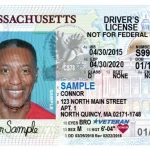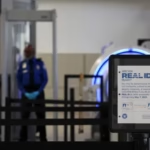By Emmanuel Paul | Caribbean Television Network (CTN)
As the May 7, 2025 deadline for nationwide REAL ID enforcement approaches, many immigrants in the United States remain uncertain about how the new federal identification requirements apply to them.
In response to an inquiry from the Caribbean Television Network (CTN), the Transportation Security Administration (TSA) has provided key clarifications regarding which categories of immigrants are required to have a REAL ID in order to travel domestically.
In a written statement provided to our newsroom, the TSA outlined how the REAL ID Act affects various immigrant groups and who must obtain this important document.
“Noncitizens legally residing in the United States, like Green Card holders, must have a REAL ID or other acceptable form of identification and should update their state-issued driver’s license or identification card to make it REAL ID compliant,” said a TSA spokesperson in response to CTN’s inquiry.
According to the TSA, this requirement applies to several categories of immigrants, including:
-
Lawful Permanent Residents (Green Card holders)
-
Temporary Residents
-
Individuals with Temporary Protected Status (TPS)
-
Student visa holders
These individuals must ensure that their state-issued ID or driver’s license complies with REAL ID standards, which are typically marked by a gold or black star in the upper right corner of the card.
The TSA also emphasized that undocumented immigrants will be significantly affected by the new policy.
“With REAL ID in place, those who are in the U.S. illegally will no longer be able to use ID cards and driver’s licenses that are out of compliance to fly, unless they are self-deporting,” the spokesperson added.
This means that beginning May 7, 2025, state-issued licenses or IDs that do not meet REAL ID standards will no longer be accepted for domestic air travel or for entry into certain federal facilities—unless the traveler presents another form of federally accepted identification.
Acceptable alternative documents include U.S. passports, certain foreign passports, Department of Homeland Security (DHS) “trusted traveler” cards such as Global Entry or SENTRI, and specific immigration-related documents such as the USCIS Employment Authorization Card (Form I-766).
CTN will continue to monitor this evolving story and provide timely updates to ensure immigrant communities in Florida, Massachusetts, and New York are informed and prepared.
For a complete list of accepted identification documents under the new TSA guidelines, visit www.tsa.gov/real-id.







